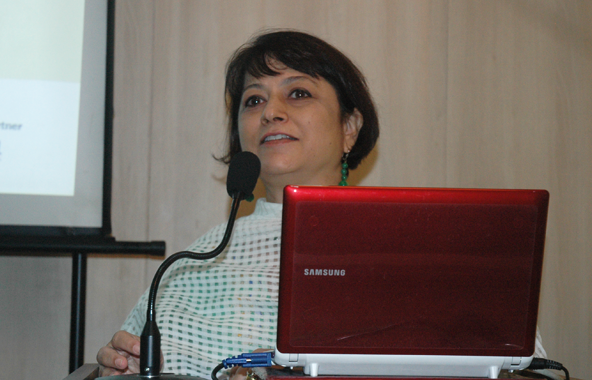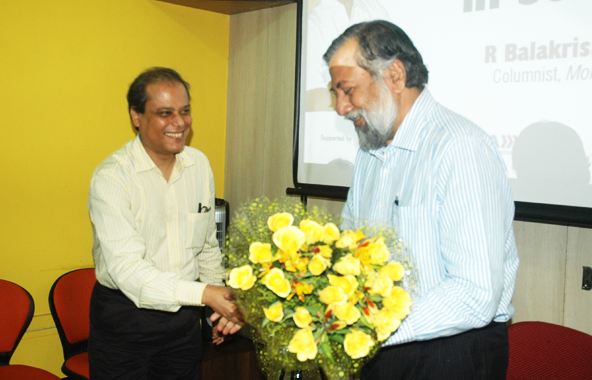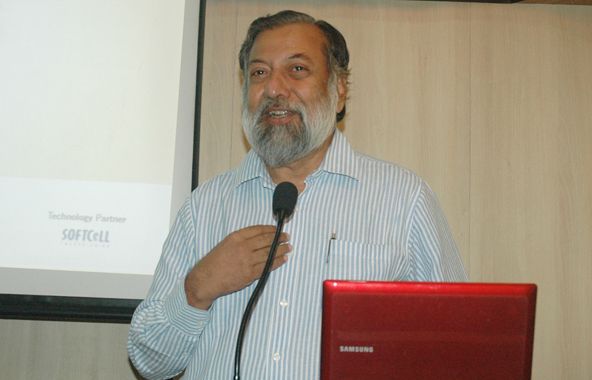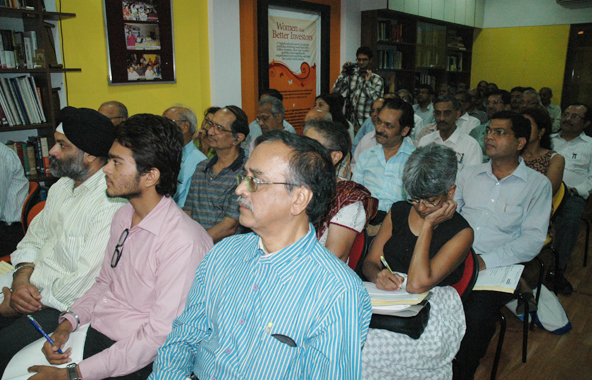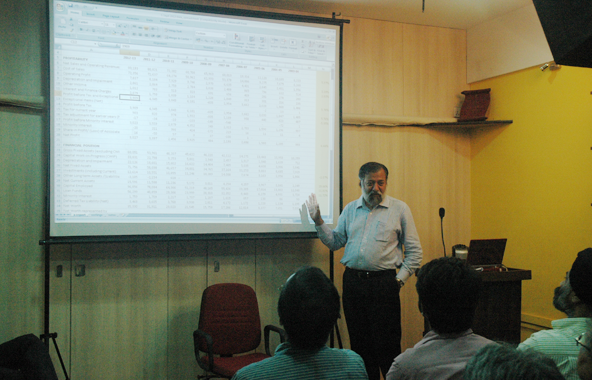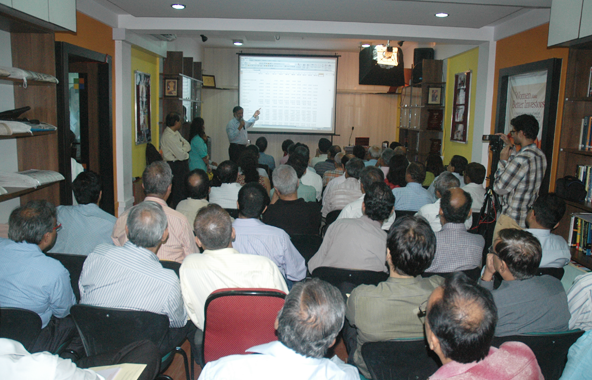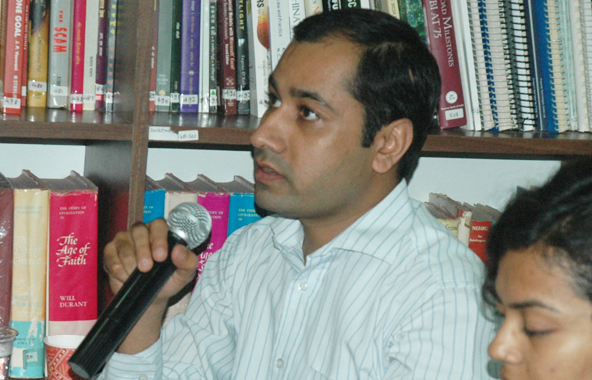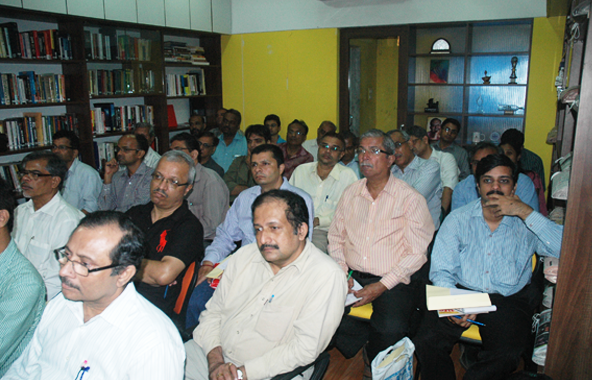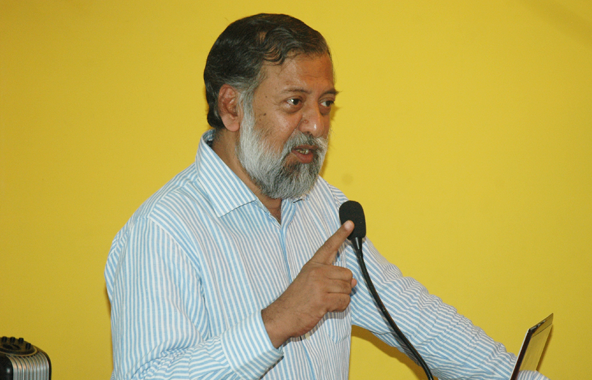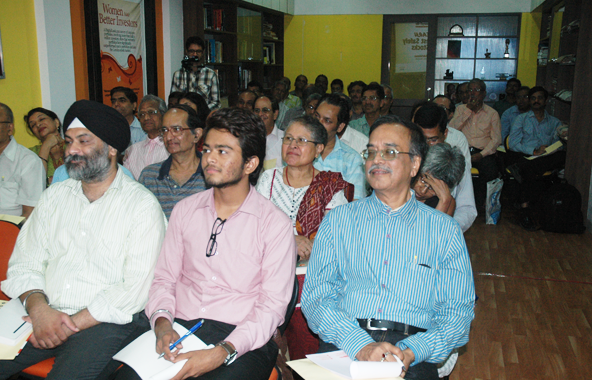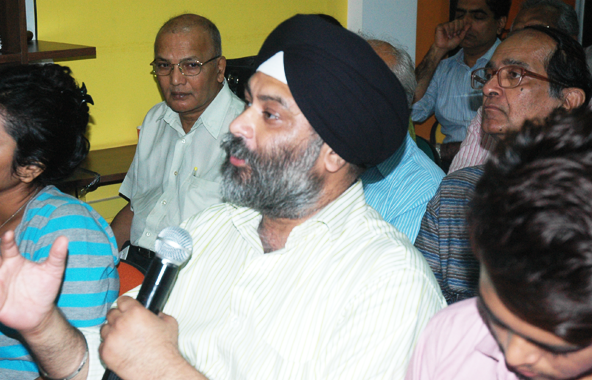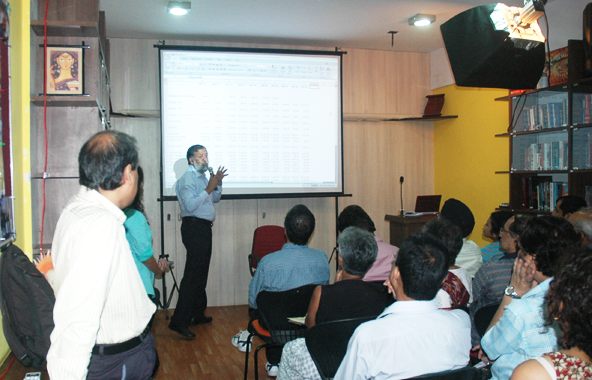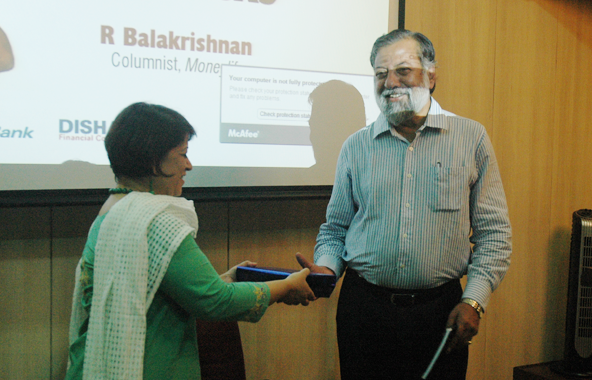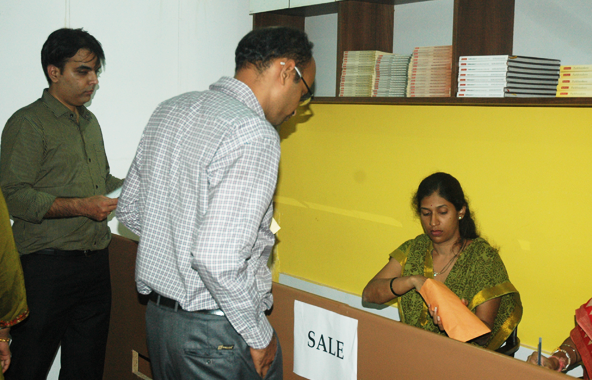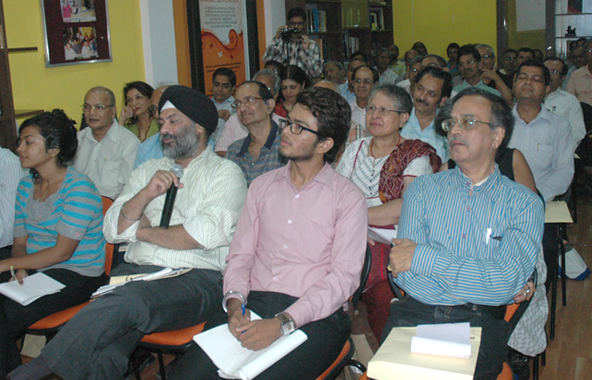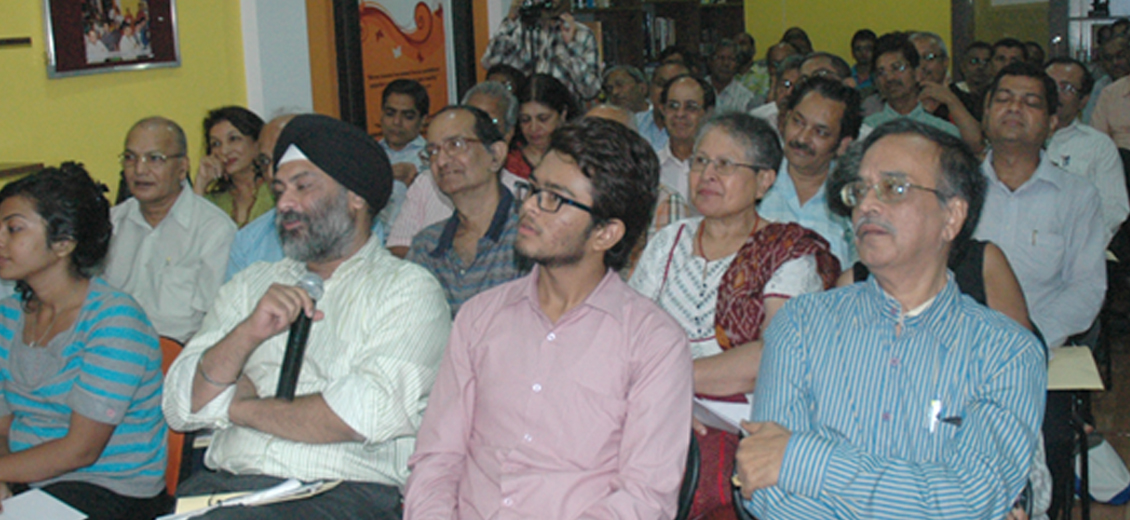
The average investor has no clue about what he is buying or selling, survives in the stock market mainly because of luck. The ones who do survive may have done so because of some skill or just luck. At an exclusive event organised by Moneylife Foundation, on how to invest in stocks safely, R Balakrishnan, who has over three decades of experience across banking, credit and capital markets, explained to the packed audience on how one should drown out the noise and evaluate a company using by crunching a few numbers. “An average investor has generally no clue about what he is buying or selling.
His long-term investments or holdings are often an outcome of a short-term trade he initiated which went bad. He simply hates to sell below the price at which he bought,” said Mr Balakrishnan.
“Invest in stocks only if you have money to spare,” cautioned Mr Balakrishnan. “Don’t invest in stocks with money which is very important for you, to use it for a child’s education or marriage. In that case, don’t risk your hard earned money in stocks, keep it safe even though may earn lower returns on it”. Also, remember when investing in stocks, Mr Balakrishnan said, “Returns may not come when you want it. Stock prices are decided by many factors none of which controlled by us.”
He pointed out that when an investor buys a stock, he becomes a part-owner of the company. One should understand the business of the company, the sustainability of growth over the next five years or so. To be on a safer side, one should pick companies which have a history of more than 10 years, over which at least one business cycle is complete.
More importantly, the investor should look at the company’s management, whether the goal of the promoter aligns itself with the goals of the shareholder. “Look at the nature of companies, the trustworthiness and goodwill of promoters along with cash flows and future of business the companies have,” advised Mr Balakrishnan.
For those who dread numbers, Mr Balakrishnan says, “If you cannot go too deep in to the accounts, you should stay focused at least on one thing, namely, management quality. To me, the quality of management is perhaps the single most important factor in an analysis. Ultimately, when we buy a share, we are becoming a part-owner of the business that is run by someone. We are dependent on them to deliver. However good a business or industry, it cannot be better than the people at the helm.”
Mr Balakrishnan gave several examples of companies where the promoters have messed up the accounts or tried to hide expenses and show higher profits. For this one does have look at numbers in great detail. At times, the fraud is so well concealed it is difficult to find it out, but inconsistency in numbers can throw light on the quality of management. “When they have debt, and it keeps increasing, I worry. I have seen companies where the borrowings increase more than the sales numbers. Surely, that’s a sign of great trouble,” explained Mr Balakrishnan.
Using a detailed spreadsheet, Mr Balakrishnan explained how one can analyse the profit and loss account and the balance sheet of a company. To analyse such data, he said, one needs to divide it into three groups, earnings, the assets & liabilities and the cash flow. He also, pointed out that while short-listing companies, two most important ratios one should look at is the return on capital employed (RoCE) and return on equity, also know as return on networth (RoNW). RoE is a very important ratio, “It (RoE) is essentially profit after tax (PAT) expressed as a percentage of the total net worth or shareholders’ funds. In simple words, it tells me how efficiently the company uses shareholders’ money and how much it earns with that money. All other things—market share, brand value, corporate governance, competencies, etc—are secondary. If a company is good, its numbers should ultimately get reflected in superior earnings,” said Mr Balakrishnan. “Many people don’t do their homework. If you wish to invest in stocks you should devote at least an hour a week to understand the business of the company and the financial statements,” he said. The programme ended with a lively interaction with the audience.


